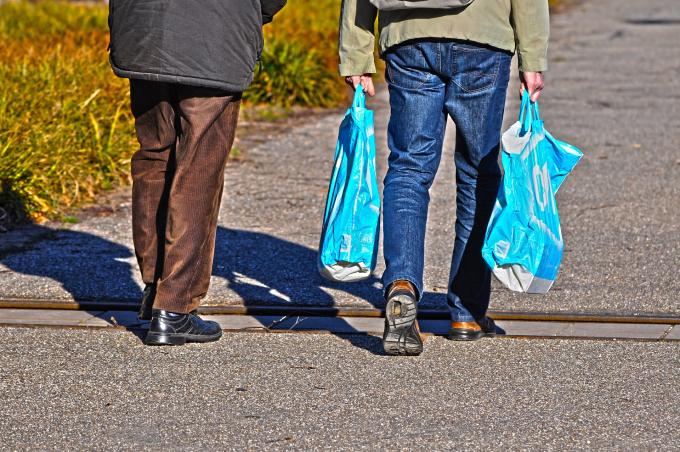
Plastic bags have a huge environmental impact, with an estimated 500 billion to 1 trillion plastic bags used each year around the world. These bags mainly end up either in landfill or polluting our environment. As well as this, the production of plastic bags uses fossil fuels resulting in huge amounts of CO2 being emitted. The introduction of a charge for plastic bags has successfully reduced their use, but there is still more to be done.
#Refuse
Instead of providing plastic bags, stock one of the alternatives below.
#Reduce
Only provide bags where necessary or if customers ask.
#Reuse
Encourage customers to bring their own reusable bags, and introduce a Boomerang Bag scheme for those who forget to bring theirs.
- Alternatives -
Paper Bags
Pros:Paper bags are completely biodegradable. They are also easy to store, can withstand a considerable amount of weight, and can be reused by customers if not damaged.Cons:They are less weather resistant than other materials so are more susceptible to damage, and the production process requires a lot of resources including water & energy.Suppliers:Paper Bag Co, Elliot Packaging, Kite PackagingRecycling:They can be recycled along with other paper and can also be composted (this excludes laminated paper bags).Jute Bags
Pros:Jute bags are biodegradable, washable and durable. They are made from the fibres of the jute plant which is fast-growing, and the process of making the bags has a very low carbon footprint.Cons:The jute plant is mainly grown in India, Bangladesh and China so the bags have to be transported a long way. They can also be more expensive than bags made from other materials - although they last a long time so can save money in the long run!Suppliers:Natural Bag Company, Carrier Bag Shop, Rocaba PackagingRecycling:The bags are designed to last for many uses, but when they eventually wear out jute is biodegradable.Cotton Bags
Pros:Cotton bags are made from renewable resources and can be reused hundreds of times.Cons:Much of the cotton produced is not organic and is grown using pesticides which can contribute to pollution. The manufacturing process also requires large amounts of energy and water so the bag needs to be used many times to offset the impacts of production.Suppliers:Cotton Bag, Supreme Creations, Cotton Bag Co.Recycling:Only cotton without images and logos can be recycled, and this depends on local textile recycling availability. In Somerset, only wearable clothes and shoes can be recycled in kerbside collections.